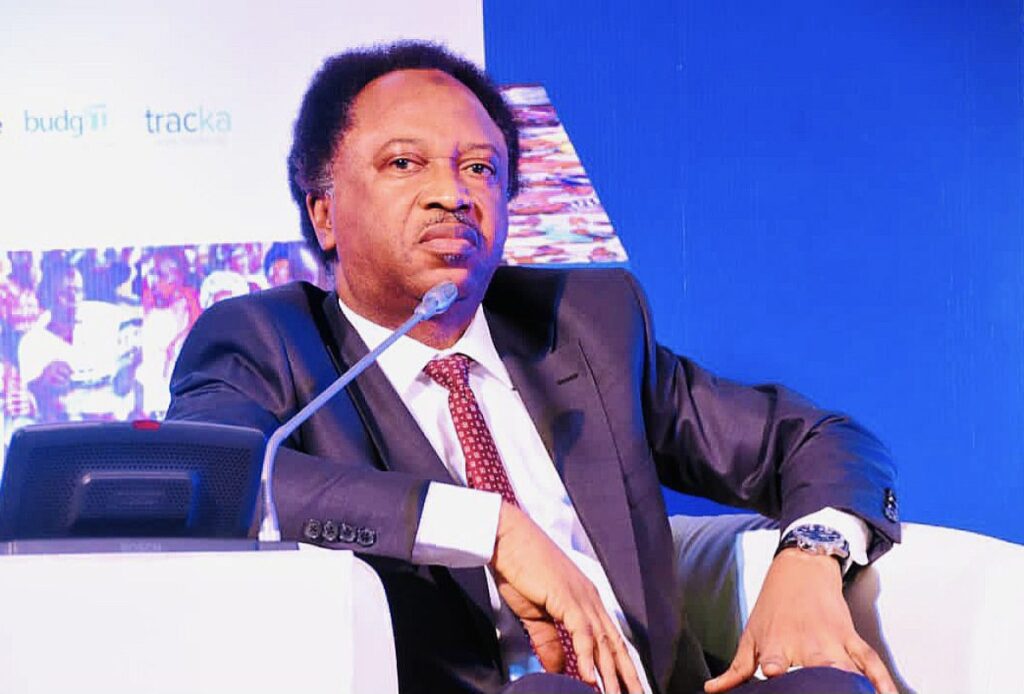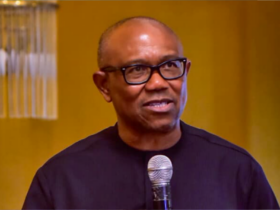Shehu Sani, a former federal lawmaker, has ignited a flurry of responses on social media with his latest comment on the state of the ‘minimum wage’ in Nigeria, saying that the issue of ‘minimum wage’ is being ignored, much like a voicemail left unanswered.

Taking to his X handle, Sani remarked, “Minimum wage has entered voicemail,” a statement that quickly went viral.
Sani’s comment humorously highlights the frustration many Nigerians feel about the minimum wage, suggesting that it is being ignored, much like a voicemail left unanswered.
This witty yet pointed observation resonated with many, leading to a wave of reactions from netizens.
Some Twitter users praised Sani for bringing attention to the plight of workers struggling to make ends meet on the current minimum wage. Others used the opportunity to express their own frustrations with the government and the slow pace of economic reforms.
READ ALSO: Biden Sick With Cold; Reason for Unsteady Performance in Debate With Trump—Campaign Source
“Minimum wage has entered voicemail, but to use 650M to buy ticket for Travel is on. No problem” one user, @activeplayboi, commented.
Another user, @nsikool, added, “NLC exco dudes collected brown envelopes behind the scenes.”
Another netizen, @Nasirzugachi, also tweeted, “Our country leaders are not serious about the issue.”
@jidifeanyi, commented, “Labour has laboured in vain.”
@NairaRatesNews0, also wrote, “The labour leadership seems to be playing hide and seek with Nigerian workers. Nigerian Labour organisation seems to be the most useless Organisation in the world.”
The debate over the minimum wage continues to be a hot topic in Nigeria, with many calling for an increase to match the rising cost of living. Sani’s comment has further fueled this ongoing discussion, reminding everyone of the urgent need to address workers’ concerns.
Government and Labour Unions Struggle to Agree on New Minimum Wage
Nigerian labour unions had declared an indefinite strike on June 3, 2024, paralyzing key sectors including airports, hospitals, the national grid, banks, and government assemblies.
The unions argued that the current ₦30,000 minimum wage is insufficient, given rising inflation, the removal of petrol subsidies, and currency unification policies. They also criticized some governors for not adhering to the existing wage law, which expired in April 2024, five years after its enactment.
In January 2024, Bola Tinubu established a committee to negotiate a new wage. Labour initially demanded ₦615,000, then reduced their ask to ₦494,000. Conversely, the government and private sector proposed figures ranging from ₦48,000 to ₦60,000, which labour rejected, prompting the strike.
On June 3, Secretary to the Government, George Akume, announced the President’s commitment to a wage above ₦60,000 and a week-long negotiation. Labour suspended the strike on June 4 to resume talks.
Despite the government saying that it is committed to increasing the offer, both sides have failed to reach an agreement.
As the wait grows, it remains to be seen if the government will take notice and make the necessary changes to improve the situation for Nigerian workers.
Follow Parallel Facts on WhatsApp Channel: https://whatsapp.com/channel/0029VaCQSAoHgZWiDjR3Kn2E









Leave a Reply